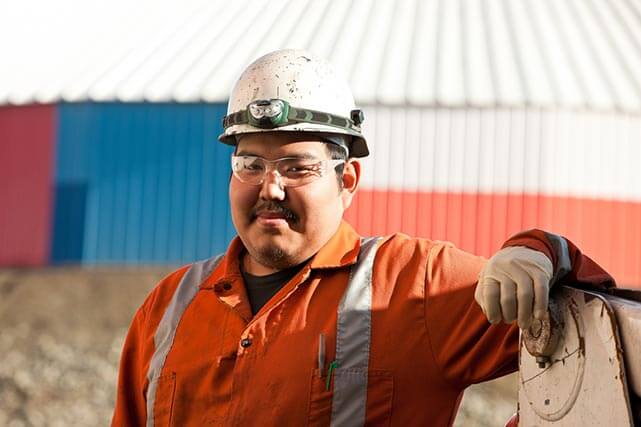Mark Milstein lives and breathes sustainable business. As director of the Center for Sustainable Global Enterprise at the Samuel Curtis Johnson Graduate School of Management at Cornell University, Milstein teaches and conducts research on strategy, decision-making, technology management and innovation within the context of sustainability. His research focuses on how and why firms generate new business growth opportunities by treating social and environmental challenges as unmet market needs. Within these parameters, he looks closely at how the private sector can help alleviate poverty and the role that technology commercialization strategies can play to catalyze sustainable innovation. Corporate Knights recently spoke with Milstein about current trends around sustainability in MBA programs. What follows is an excerpt from that discussion:
CK: Our magazine does an annual ranking of MBA schools in Canada by measuring the degree to which sustainability is integrated into their respective curriculums. It’s an insightful, but also challenging exercise given the different approaches schools take. What does the landscape look like in your view?
MILSTEIN: There’s no single standard for what ought to be done. You have standalone programs like Presidio Graduate School or Bainbridge Graduate Institute that focus entirely on sustainable management. You have programs at Michigan, Yale and Duke (with similar approaches), and you’ve got programs like ours and Berkeley’s where you have substantial content in sustainability offered in different ways. There’s a real variety out there.
CK: This must create some confusion, in terms of what both students and faculty are looking for.
MILSTEIN: One of the challenges to the area is that sustainability itself is a term that can have a lot of meanings. The challenge academically for schools that want to develop a program is, do they really know what they want to develop? They can cover labour issues, cleantech, impact investing – there are so many different terminologies now that can apply. And at the end of the day you need faculty members and staff who are going to put programs together. Part of the struggle I’ve watched is people never being clear on what they want a program to focus on.
CK: How would you categorize the approaches or learning opportunities?
MILSTEIN: From our perspective at Cornell, we think the business and sustainability space is divided into three main content areas. (One is) environmental management, where you define sustainability as something more akin to a regulatory problem. You can follow regulations or try to influence regulations as they’re played out. How are (regulations) going to impact your operations, the materials you use and the design of your products? A second area that’s gained a lot of currency in the last 10 years is corporate social responsibility. CSR includes environmental management but also sustainability as public opinion. The third component is what I call sustainability enterprise, and that’s looking at sustainability as a business opportunity. If (the drivers behind sustainability) are a long-lasting and chronic problem, what are the businesses and technologies and products we can commercialize around it? Our program is focused on that last piece, emphasizing sustainable enterprise. Our students want to lead a company, know what to invest in, know what to commercialize. Here you’re focused on business growth opportunities, and that’s very different than many programs focused on ethics or CSR.
CK: So a school and prospective students really need to know what they want their strengths to be.
MILSTEIN: In my mind, most programs have not thought this stuff out, and that’s a problem for the space. The dynamic you end up with inside programs is you have a lot of committees, people making decisions about courses, and you’re going to have a group of faculty of different areas weighing in on whether that makes sense for the school.
CK: What’s the job market today for MBA graduates drawn to the business of sustainability?
MILSTEIN: There are plenty of jobs for folks in the environmental management domain, but our MBAs don’t want those. There are probably not enough CSR jobs in the world to satisfy the demand of our business graduate students. Sustainable enterprise jobs are a little bit trickier. Sometimes it means you’re just going after a normal straight-line job, but we’ve armed our students with a deeper knowledge of what those sustainable opportunities are. A lot of our graduates end up taking straight-line jobs in consulting or Wall Street or consumer products firms. They’re getting into those roles and applying a different lens to problems and building solutions that will tap into sustainability without making it a front-and-centre goal of what they’re trying to accomplish.
CK: Should sustainability continue to be its own silo within the MBA curriculum or more broadly integrated across entire MBA programs?
MILSTEIN: If you go back 20 years, people were arguing it’s a complex multidisciplinary subject and you can’t compartmentalize it; that it has to be diffused among everything. Getting that in practice has been tricky. What’s the right answer? We have this debate internally. Must you have sustainability in the core? On the one hand, I say, it would make a lot of sense to have a sustainability course in the core. Then again, I don’t want it as its own standalone subject and I want to integrate it across all the courses. I think it’s about thinking through how a program is structured, what students want to do, what kind of decisions do they want to participate in, and how do we make sure we’ve prepared them for that. What we’re saying is we shouldn’t be graduating anybody from the Cornell program who doesn’t have a fundamental understanding of what the sustainability domain looks like, what their options are, and how they can move forward on different decisions.
CK: Are more students seeking sustainability in their business school studies? Are there a growing number of applicants in this area?
MILSTEIN: I don’t have enough information to say conclusively across the board there’s growth. I know what’s going on in our school. In 2004 we had only a handful of students. Now we grapple with the fact that half our (business school) applicants are citing our program as the reason they applied to Cornell. That’s pretty big growth for us. When I talk to colleagues, they tell me those are big numbers for a program or content area.
CK: Is the growing interest a generational thing?
MILSTEIN: Look at the trend. The millennials are coming up. Those students coming to our programs, on average 27 or 28 years old, have been socialized on social and environmental issues from a very early age in a way we never were. They are more involved in some ways – volunteering is something they grew up with. Environmental consciousness is something they grew up with. There is a shift in the interests that students have. Now, we have no lack of people who want to get an MBA and just go to Wall Street and make as much money as they can. But increasingly there are people who are concerned about social issues, concerned about environmental issues, and believe the private sector should have a role to play in addressing these issues. That’s a trend that’s growing and it’s not going to go away anytime soon. There are not good, viable solutions to how we sort out growing to a population of nine billion or more, and supporting a population of that size. We’re seeing it even now from the NGO community. They are turning to entities like us, turning to our students, and explaining how they’ve been working on these problems for decades and things are only getting worse; that they’d like to work increasingly with the private sector.
CK: So more students want their livelihood to be a reflection of who they are and the values they hold?
MILSTEIN: People want to demonstrate they work for places that care and are involved. When we walk into an interview room now, people (applicants) are asking us questions about social problems, how we can reconcile products in the marketplace with these other problems we face. It is something companies themselves recognize has come to their doorstep in a large way, which is a big contrast to about eight years ago. HR people eight years ago said sustainability is important but what does it have to do with HR? Now they say it’s important to them – if companies don’t demonstrate they’re good corporate citizens they can lose strong candidates right off the bat.
Click here to go back to the ranking landing page.






